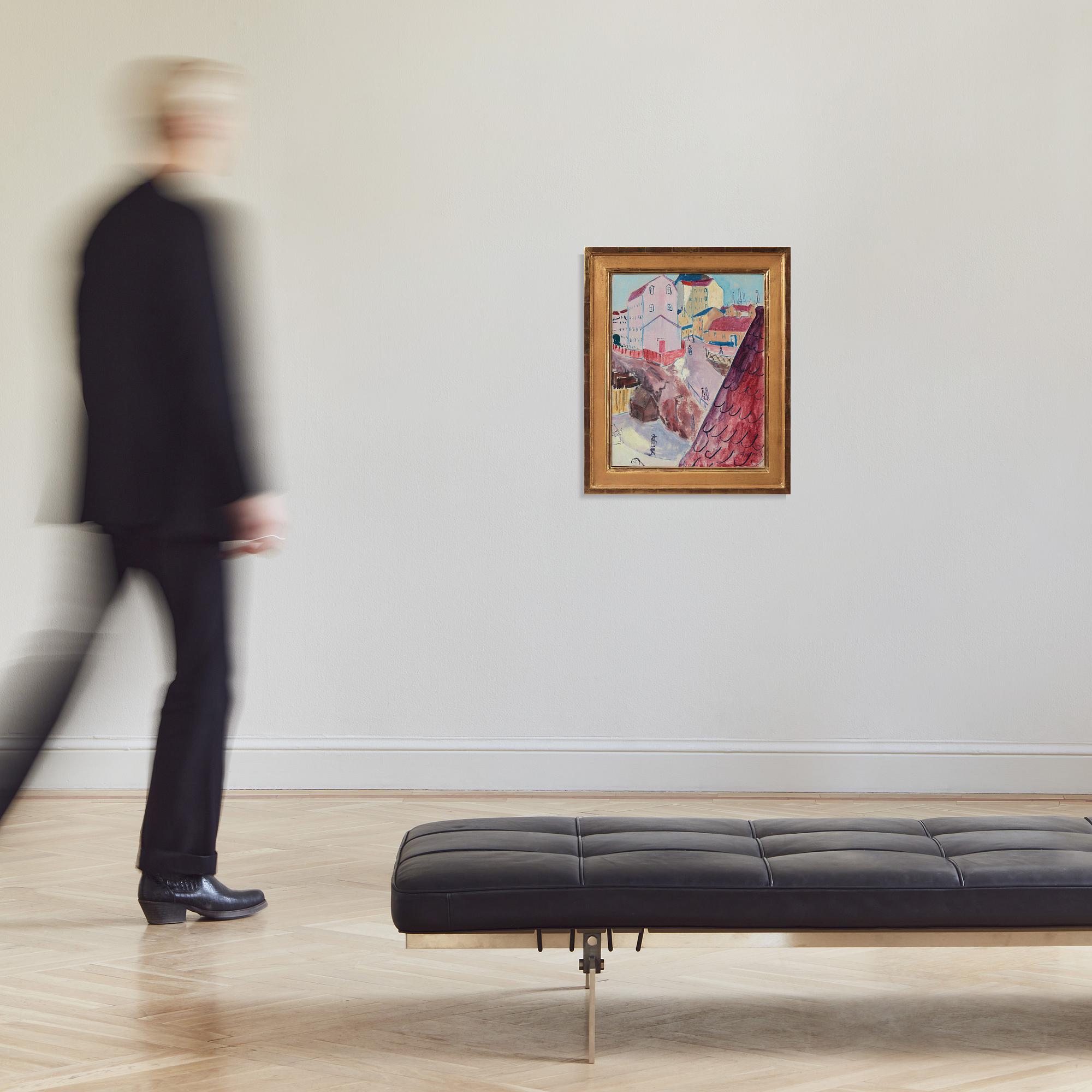Isaac Grünewald
"Det röda taket - Glasbruksgatan, Stockholm".
Signed Isaac. Executed 1914. Canvas 55 x 43 cm.
Provenance
Previously in the collection of insurance official John Rossing, Stockholm.
Stockholm Auction House, Modern art & works of art, 6 May 2010, cat. no. 1127.
Exhibitions
Liljevalchs Konsthall, Stockholm, "Isaac Grünewald's paintings 1904 - 1944", 7 - 29 October 1944, catalogue no. 137, cat. no. 91.
The Royal Academy of Fine Arts, Stockholm, The Swedish General Art Association, "Isaac Grünewald 1889 - 1946 - memorial exhibition", 7 February - 1 March 1959, cat. no. 47.
Literature
"Konst i svenska hem" volume 10, listed on page 559 under collection 984: "Insurance officer John Rossing, Brahegatan 32, Stockholm."
More information
Isaac Grünewald is a phenomenon in Swedish art. His work has the kind of energy that never seems to settle down, to settle safely as an authoritative statement in art history books. The unimaginable breadth of his production, the life and passion from which the countless projects were born, is still alive and vibrating today, without losing its strength. The Red Roof - Glasbruksgatan, Stockholm is very much such a little jewel.
The story of the young, cheeky and talented boy who went to Paris (1908 - 1911) to be apprenticed to the unconditional bon vivant (Le Fauve = the beast) Henri Matisse, is one of the favorite Swedish stories of the 20th century. With Matisse, he and the other Swedish students are freed from the Nordic color scale and the restrained brushwork. He is already living with a very special and highly talented painter, Sigrid Hjertén. Their relationship becomes mythically fruitful. Which of them is the better artist? An uninteresting question: both changed Swedish art forever. Another important Swedish inspiration is the maverick Ernst Josephson.
The Red Roof - Glasbruksgatan, Stockholm was painted during an intense period in the artist's life. He is still only twenty-five years old, but is already in the midst of a revolutionary career that at times takes its toll on both him and Sigrid. Together they also have a young son, Ivan. Outside, the Great World War is raging and in Sweden, people are remodeling their houses. Is there really room for such debauchery as exploding colorism? The criticism is harsh and also - in Grünewald's case - laced with anti-Semitism. Seen in that light, this painting sings of confident joy. “From this vantage point I am untouchable”, it seems to say. Here they would stay for twenty-five years.
Anyone who has any kind of relationship with the streets, heights and facades of Söder in Stockholm today will probably quickly recognize the feeling. Or really anyone who has experienced a sense of belonging and well-being in a neighborhood that feels like “home”. The knowledge and skill to express temperature and life is well expressed here. Cool pink against sunny yellow. And across it, hottest red. The whole view is “disturbed” by the sloping attic studio roof. The composition is masterfully executed with a confident and experienced hand. Something to notice is how Isaac has marked the roof tiles: cheerful J's, locks of hair, neat notes. It all sounds quite beautiful from this little city view.






























































